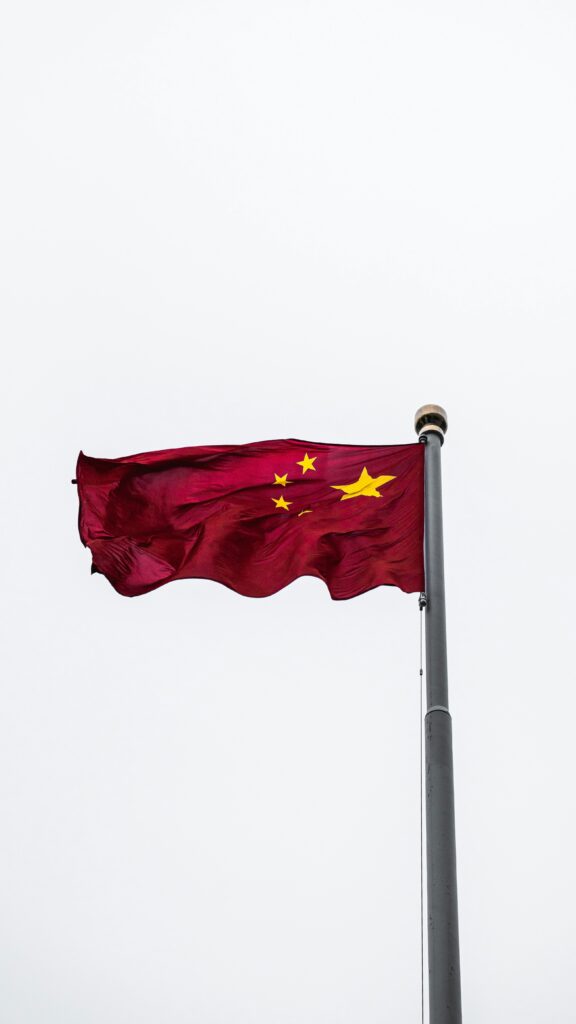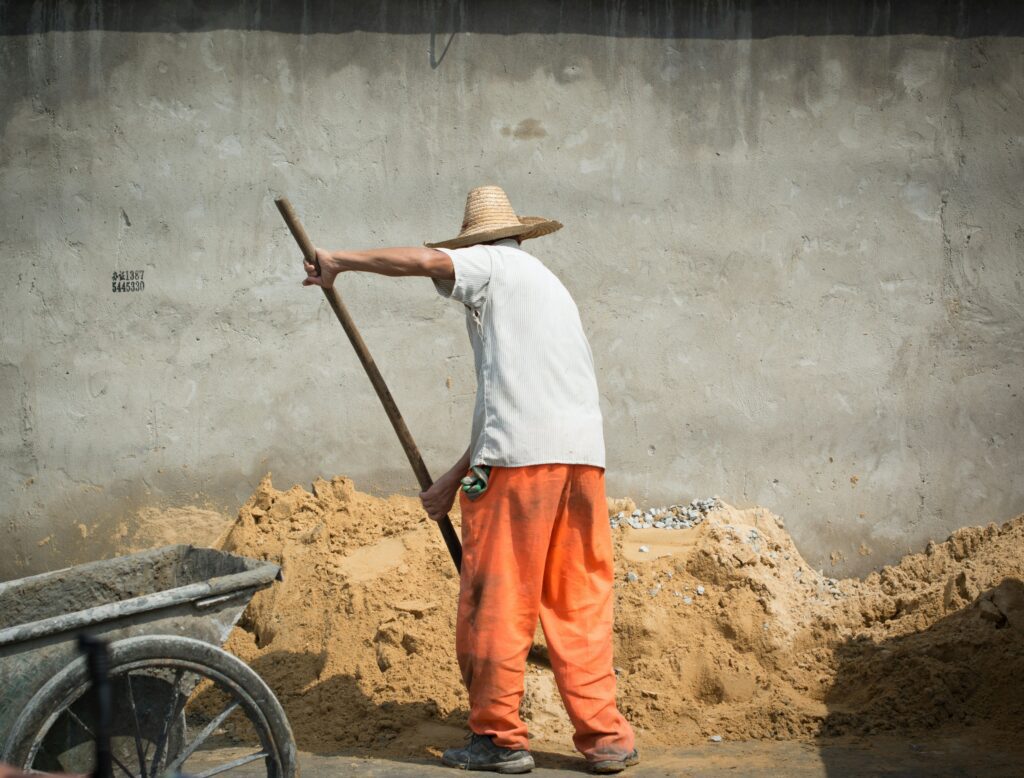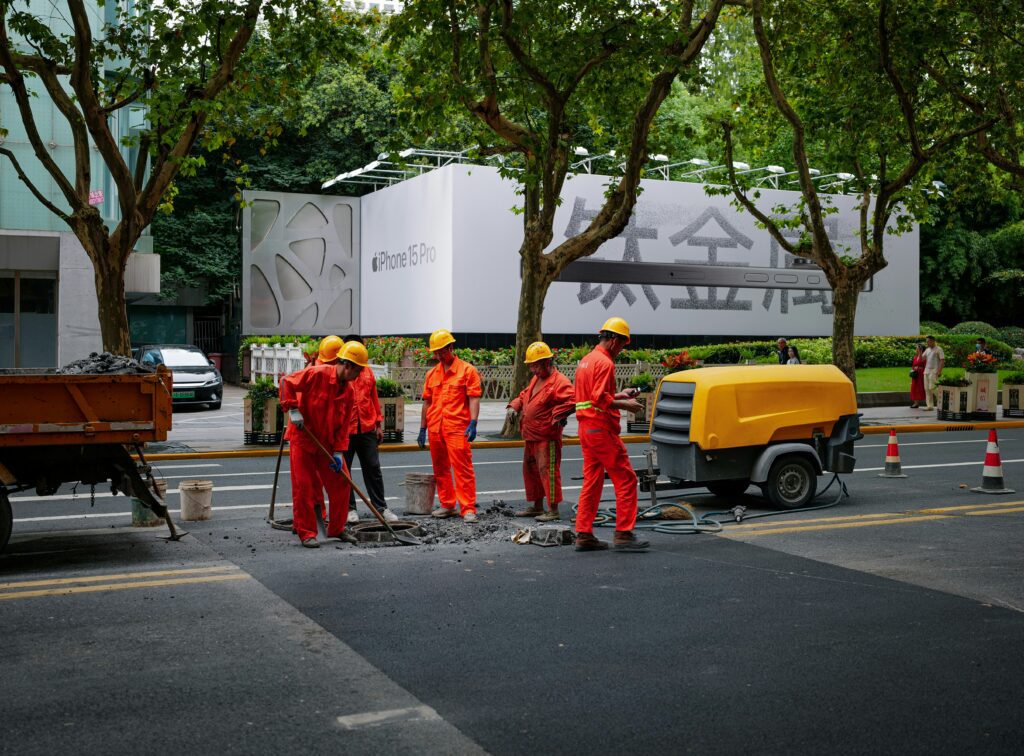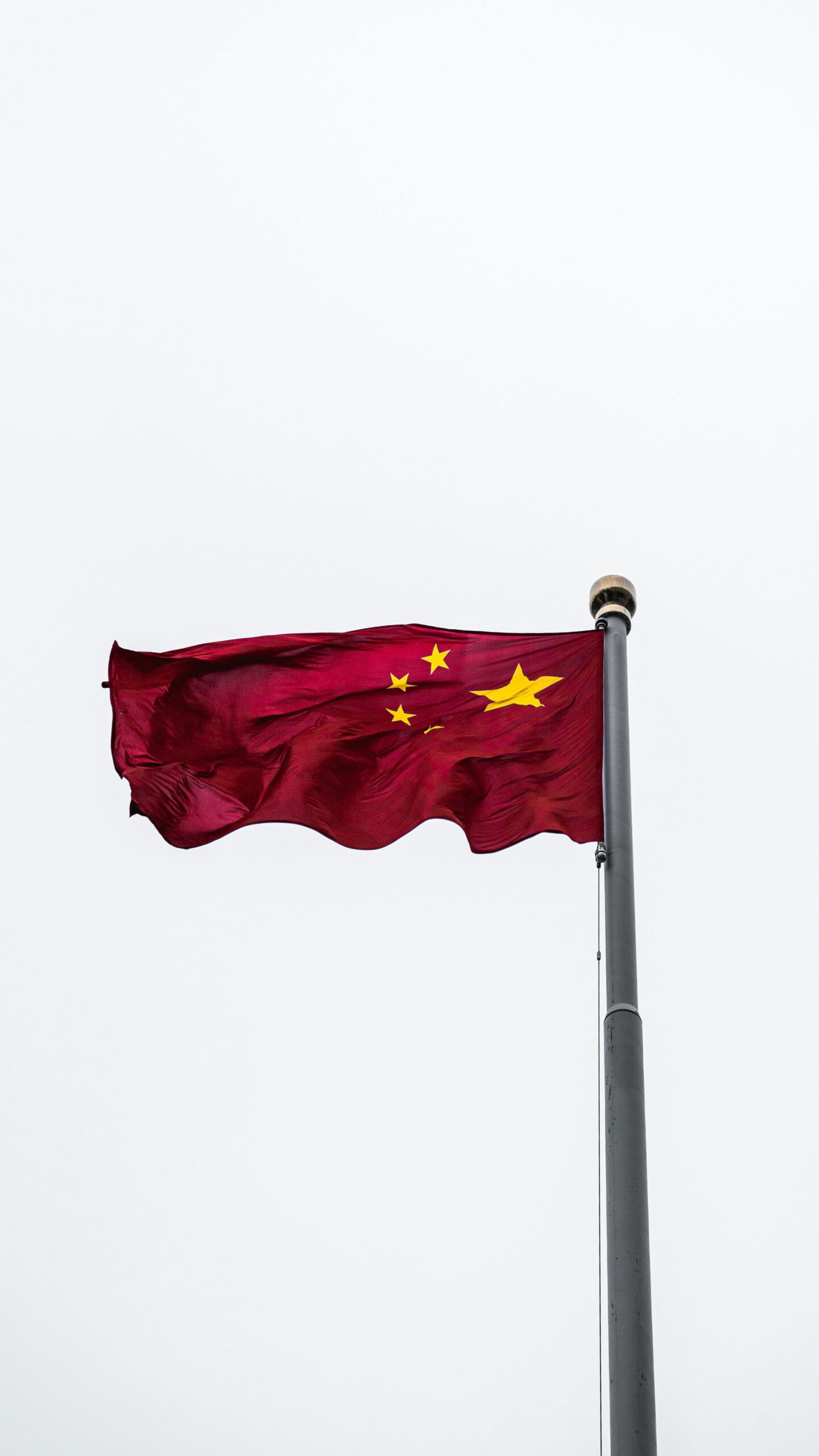Business Extreme Work Culture in China Explained

Chinese people have the reputation to be hard workers and put in longer hours than western workplaces for not much money . Things have changed since the 90’s and even if the work days are huge ( see the 996 explanation below ) and lunch breaks are short, the younger generations tend to want a more blossoming personal life.

China’s work culture is a combination of a traditional manner of life and modern ideas. I want to explain that hard work and honey can be spread equally through ketchup. This is just like the saying, “Practice makes perfection.” All together here, people work in teams to achieve the same goal. The reverence for authority, which is intrinsically an integral component, is a significant factor.
Getting on with your colleagues and building good working relationships with them are deemed the ultimate recipe for success. This “guanxi,” which is pronounced as can-see, functions as a friend-ky network that can make your situation almost as good as the best one. The problem is that employers may ask you to do overtime, often in industries that are lively and require quick actions.
It is a tangled path with many details and fascinating features, though.


Working culture in China
The significance of history and culture are the most influential forces in work culture in China.
✔️ Confucianism:
This means underpin what is known as the Chinese branch of philosophy of social peace and the necessity to observe hierarchy when it comes to the Chinese working culture. The team members are followers of good leaders. They emphasize teamwork success and reaching an agreement among the company. That’s why they are searching for social stability.
✔️ Collectivism:
Chinese society regards social good as being more important than a single individual’s accomplishments. This is because, in Eastern cultures, there is a collective ‘we’ mindset in place. This is a summary of the central part, which means teamwork, collaboration, and working for the company goals rather than for personal aims.
✔️ Guanxi (关系):
This positive relationship is essential. “Guanxi” is used for the same purpose, as well as to build trust and work respect among colleagues at the office. It can sometimes be even more valuable than the skills on one’s CV.

✔️ Work Ethic:
The notions of self-discipline and filial piety (respecting parents and superiors), as well as the feeling of self-improvement, have contributed to the high performance of Chinese workers. Some individuals who worked hard and were dedicated to the cause of democracy faced discrimination.
✔️ Historical Emphasis on Bureaucracy:
The Chinese tradition of rulership has projected a sense of respect, order, and hierarchy, which have been significant factors in the government of China. The principle “whoever is louder is right” is basically employed here.
✔️ Modernization and Economic Rise:
With the Chinese economic expansion fast-paced and hence, employees challenged in the workplace, the workplace environment is becoming more competitive and demanding. More time and optimization are becoming convenient in modern industries, the growth of pace and generality.

Critical Characteristics of Chinese Work Culture
Unswerving attention to hierarchy, a model scout for the authority.
In Chinese work environment in recent years, order is cherished as an indicator of respect for authority. It can be underlined in Taoism, for which the main points are naturalness and being content with your destiny, in Vijñāna Bhāāşā Philosophy, which stresses perfectibility and man as the essence of all beings, or even in Buddhism, with its concentration on release from suffering.
Such a concept causes a strict hierarchy to exist in companies, which is, in nine cases out of ten, established on the workers’ positions and experience. Workers demonstrate respect by greeting others, adhering to orders received, and trying to be silent when they diverge from the opinions expressed by their bosses. This emphasis on hierarchy ensures order and decision-making from the top. The team members are oriented towards the leadership wholly, while their purpose is to achieve a mission that is shared by all.

Collective orientation and teamwork
In China, collective culture is taken much higher in their office. In this case, the group works for the benefit of the wrongdoer, not the good and the evil. Besides peace, the morale of the group is a critical task. The joint work of the team takes the forefront, with the retirement of the employees getting individual recognition as the last priority. Developing that feeling of “we” in knowledge sharing creates a collaborative environment where colleagues are not competing but instead working together to gain success.
On the contrary, only through the joint effort of individuals can the collective be appreciated. Individual enterprise and thinking are sometimes disregarded. However, it is the exact dynamic that makes up such an influential culture that helps many Chinese companies persist.

Ensuring appropriate behaviors and a saving-face culture are termed status consciousness, and attitudes towards it have had a greater effect in the workplace.
Traditionally, one of the most significant elements in the Chinese work environment is to give no face loss (mianzi). “Face” is an in-built limit or access to all forms of social communication, as can be seen in queuing, addressing, or positioning among others within a social group. If you have yourself discredited in public through wrongful criticism or faults, this gets embarrassing for you.
Instead of pointing a finger directly and embarrassing a person, they may try to revise the conversation by making corrected suggestions or just avoiding it. It can occasionally be perplexing to hear the message “get around.” Community members show signs of respect and praise their superiors, which are essential for them to achieve their goals. This final topic captures the attention of every professional because this area of knowledge is a fundamental aspect of any workplace communication.
Therefore, by saving face for your coworkers, you are increasing your trust level and developing solid relationships among the workers, creating a stable and energetic environment.

Long working periods coupled with putting into work leave no time for exercising possibilities or relaxation promotion.
China has developed a reputation as having work ethics that are characterized by long hours and strong commitment.
This is consistent with the toughness it portrays in its work culture, with “996” being the reflection of that, though all do not follow it. This intention is a result of a strong personality, which consists of performance and the urge to contribute to the company’s prosperity.
Chronic employment over time can also be seen as luck in which an employee is performing well and considered reliable. Nevertheless, even this demand for long hours, in return, can contribute to stress and health problems. There is a change arising with young people now demanding more flexibility, and this is what makes their choices different from the older generation workers.
Although devotion has not lost its deeming value yet, companies are becoming more aware of the pivotal role of employee mental health.

Evaluation on encouraging partnerships and guanxi
Making solid connections, also called guanxi (pronounced can-see), has flat become the basis for practical work in China. Guanxi is not just a friendship network; it is a much more intertwined network of loyalty mut, mutual aid, and support. The process of guanxi cultivation includes:
Arranging times for workmates to spend outside the office.
Doing favors.
Having the right attitude, such as paying respect.
Genuine relationships of trust can be the gate openers to priceless resources and benefits. It breaks the ceiling, giving you a chance to become familiar with any information; you can secure the promotion, and manage the most complex situations that are well sorted out.
Nonetheless, the cult will train believers to network in a personal manner and never behave as if bribery is involved. On the whole, guanxi provides workers with a sense of community and allegiance among employees, leading to good work relationships and, ultimately, long-term success.

Communication and Business Etiquette in China Respectful Communication:
✔️ Formality: Call your associates – regardless of their position – by their proper names and avoid using first names, especially with superiors.
✔️ Indirectness: Others may view direct critique or disagreement as disrespectful. Constructive feedback is essential for mentoring students toward a better path, but public reproach should be avoided.
✔️ Active Listening: Maintain eye contact and try not to make a breakpoint. No one likes a conversationalist who keeps peppering the conversation with their problems. So, let others speak their minds.

Building Relationships:
✔️ Guanxi (关系): Help the customers build strong bonds (“guanxi”) by having a shared dinner, sharing gifts, and offering help.
✔️ Small Talk: Start with the less severe part of business before engaging in formal business.
✔️ Gift-giving symbolizes having less but never too much. Affected by cultural particularities, try to stay away from contaminated idiosyncrasies. Unlike in traditional classrooms, where the teacher is required to manage the flow of information, online courses allow students to pace themselves and have more control over their learning.

Nonverbal Communication:
✔️ Greetings: A firm but gentle handshake is acceptable, but if unsure, shake hands with a loose grip. The way young men bend and bow will slightly differ.
✔️ Body Language: Emphasize proper sitting position and reduce excessive movements. Instead of pointing at somebody with your finger, you should use an open palm to draw attention.
✔️ Personal Space: Make a choice regarding your distance, slightly closer as it is in the Western Culture.
✔️ Eye Contact: A flash of the eye will put a person down, but if they stare for a long time at someone, they will be seen as aggressive.

Meetings and Negotiations:
✔️ Punctuality: Don’t be late; instead be on time.
✔️ Presentations: Being adequately and well prepared will help make the process for you easier. Use diagrams with limited colors, but stay away from overwhelmingly colorful ones.
✔️ Decision-Making: Every time the President or the senior members make a decision, it is only after an internal discussion.
✔️ Negotiations: An art of patience, a ping-ponging back-and-forth process is what it is. Avoid having either too-eager or too-aggressive behavior.

Additional Tips:
✔️ Business Cards: Hand them the business cards with both hands and after receiving their card, place it inside this business card holder. Please make out the card and ensure it is respectful.
✔️ Humility: Bragging is a poor ethic for a leader. It fosters hypocrisy, so be humble. Bear in mind that the mere fact that they have agreed to do business with you is good business. Moreover, you need to find the best deal possible during negotiations, which is in line with your business’s objective.
✔️Cultural Sensitivity: Recognize different cultures and be warned of being offensive.

What is the 996 in China ?
996-work culture in China is one of the common practices and refers to a controversial work schedule commonly practiced in some Chinese tech companies, where employees are expected to work from 9 a.m. to 9 p.m., 6 days a week. This practice has sparked discussions about work-life balance, workers’ rights, and the impact on personal lives of Chinese employees.
The 996 work culture is often seen as a reflection of the intense work ethic prevalent in Chinese workplaces, particularly in the tech industry. This practice has raised concerns about unpaid overtime, long work hours, and the well-being of employees. Some argue that it is detrimental to the physical and mental health of workers, while others view it as necessary for the success of Chinese tech companies in a competitive global market.
From a Chinese point of view, the 996 work culture is sometimes seen as a way to show dedication and commitment to the company. In Chinese business culture, long work hours are often associated with hard work and loyalty. However, there are also growing calls for better work-life balance and respect for workers’ rights in Chinese workplaces.
Chinese labor laws stipulate regulations regarding work hours, overtime pay, and workers’ rights, but the enforcement of these laws can vary across different sectors and regions in China. As the debate continues, Chinese employees, business partners, and stakeholders are navigating the complex landscape of workplace culture and practices in the context of the evolving Chinese economy and global business interactions.

What is the legal working time in China ?
In China, the legal working time is regulated by the Chinese labor law. According to the law, the standard working time is 8 hours per day and 40 hours per week for most employees. Any work beyond this standard is considered overtime and should be compensated according to the regulations set forth in the labor law.
Chinese labor law also mandates that employees are entitled to at least one rest day per week and a minimum of 5 days of paid annual leave after one year of continuous employment. Additionally, the law stipulates provisions for breaks during the workday, including meal breaks, rest breaks, and other necessary intervals for employees to rest and refresh.
These regulations are in place to protect the rights of Chinese workers and ensure their well-being in the workplace. While there may be variations in specific industries or regions, the labor law sets the foundation for standard working hours, overtime pay, rest days, and other important aspects of employment in China. It reflects the government’s efforts to balance the demands of the workforce with the needs of businesses and the overall economy.

Work-Life Balance and Wellbeing in China
✔️ Traditional Focus: Jobs set the tone, with loads of work, time commitment, and performance being put on top. It is “996” (working from 9 am to 9 pm, six days a week), which indicates how it gets “up to speed” in a rather extreme manner.
✔️ Shifting Trends: Younger people and digital natives are trying to achieve more fulfilling work-life harmony, which is why companies are paying great attention to employees’ wellbeing.
✔️Unhappy Leave Initiatives: Certain firms even like to count in “the unhappy leave,” the personal time is allotted for a person to recharge.
✔️ Balancing Work and Life: The idea of life-work balance shifts amidst some to regard the separation of work and life as not the same and devise a model for the intertwining of these two elements all the more.
✔️ Government Initiatives: The Chinese government tends to persuade companies to formulate policies that are supportive of work-life balance; one of the policies is capping the number of hours that employees are allowed to work overtime and encouraging employees to have all work come weekends.
✔️ Mental Health Awareness: Mental health awareness is not yet in a straight line, but there’s a growing consciousness towards mental health topics in China. Companies are starting to provide mental heating resources and support for their employees.

Final Thoughts
The working culture in China is such an exciting piece of clothing that is a mix of tradition and modernity. Confucian values are arranged in a hierarchical pattern with the respect that marks them out, and collectivism brings about the spirit of a team within the society. The development of good connections (“guanxi”) is essential, while communication is primarily based on indirectness and the preservation of the “face.”
However, a new philosophy is emerging: Employees’ schedules are being balanced instead of constantly being overwhelmed with work on a daily basis. It is thus crucial to comprehend these contrasts in order to adapt to the nature of the cliched workplace successfully. In these cases, by appreciating the cultural background, you can create effective communication and make it strong, thus succeeding while adapting to this changing society.

WHO AM I ?
Hello !
I am Eric, a French Australian citizen based between Australia, Asia and Bali and I love to travel and experience the world. I generally like outdoor activities, wellness, great food and venues , party and real local adventures ! I am a Yoga practitioner and fitness lover I created this blog because I love to travel and I want to share my experiences with others. I’ve been traveling since I was a child, and I’ve been to over 50 countries. I’ve seen some amazing things and met some amazing people, and I want to help others experience the same things.

I believe that travel is one of the best ways to learn about the world and about yourself. When you travel, you’re forced to step outside of your comfort zone and experience new things. You learn about different cultures, different religions, and different ways of life. You also learn about yourself, your strengths, and your weaknesses.
Travel can also be a great way to make new friends. When you’re traveling, you’re surrounded by people from all over the world, and you’re all in the same boat. You’re all there to explore and experience new things, and that can create a bond between people.
Let’s connect together !
I hope that my travel blog will inspire others to travel and to see the world. I also hope that it will help people to learn about different cultures and to become more open-minded.




![Most beautiful places in Myanmar [ Best pictures 2025 ]](https://funkyfreshtravels.com/wp-content/uploads/2025/05/a30b9a8b6d783fdea59bae129b6fd2e5-768x605.jpg)



